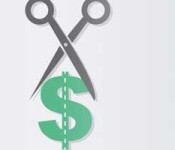
May Monthly Insight
Golden Cross – “A Golden Cross indicates that the upside momentum may persist.”
Canadian equities appear to have entered into a new stealth bull market with a cyclical rally apparently having begun on April 28, 2016. The potential reasons for this occurring are as wide and varied as the pundits’ opinions on whether or not there is a new bull market. Of course this is what makes a market; differing points of view and the gumption to stand up for your opinions and investing accordingly.
Click here to read more: Monthly Insight – May 2016 – Golden Cross

DM Monthly Report
What about Valuations? – The plunge in stocks at the beginning of the year gave pessimists just what they were looking for: initial confirmation that markets are dangerously overpriced and in need of a big reset to bring prices back in line with earnings. Since that time, however, the S&P 500 and TSX have recovered lost ground and by the end of March, both were already positive for the year.
Click here to read more: DM-Monthly-Report-Apr-16

9 Ways the 2016 Federal Budget Could Affect Your Business
The Trudeau government’s first budget contained a shock on the small business tax rate, and some smaller let-offs
by Murad Hemmadi for ProfitGuide
When Bill Morneau rose to deliver his first budget speech as Finance Minister in Justin Trudeau’s new federal government, entrepreneurs and the owners of Canada’s small- and medium-sized businesses held their breath.
Concerns over the small business tax deduction, stock options for startup employees and capital gains exemptions made this a crucial policy document for SMBs. Here’s what the 2016 federal budget will do and change, and what that means for you and your business.
1. Small Business Tax Rate Frozen
Companies that meet the criteria for a Canadian-Controlled Private Corporation (CPCC) pay a reduced effective rate on their first $500,000 of active business income. In last year’s budget, the then-Conservative government proposed to drop that rate in increments from 11% at the time to 9% by 2019.
As of January 1, 2016, the small business rate was 10.5%, and the 2016 budget “proposes that further reductions in the small business income tax rate be deferred.” In effect, that means the rate will stay where it is today until the government decides otherwise.

Shared Ownership Critical Illness
Shared Ownership refers to a concept where more than one party owns an interest in an insurance policy. The most common of these arrangements is where the corporation is the owner and beneficiary of the death benefit and the shareholder or employee owns the cash value of the policy.
Recently there has been growing interest in applying this strategy to a Critical Illness policy. Although the CI policy does not have cash value, there is usually an option to have a Return of premium (ROP) in the following situations:
- Upon death – If the insured dies without having submitted a claim for critical illness the premiums paid are refunded;
- Upon Termination – If the policy reaches its termination age without a claim being made, the premiums paid are refunded;
- Upon Surrender – If the policy is surrendered without a claim, premiums paid are refunded.


